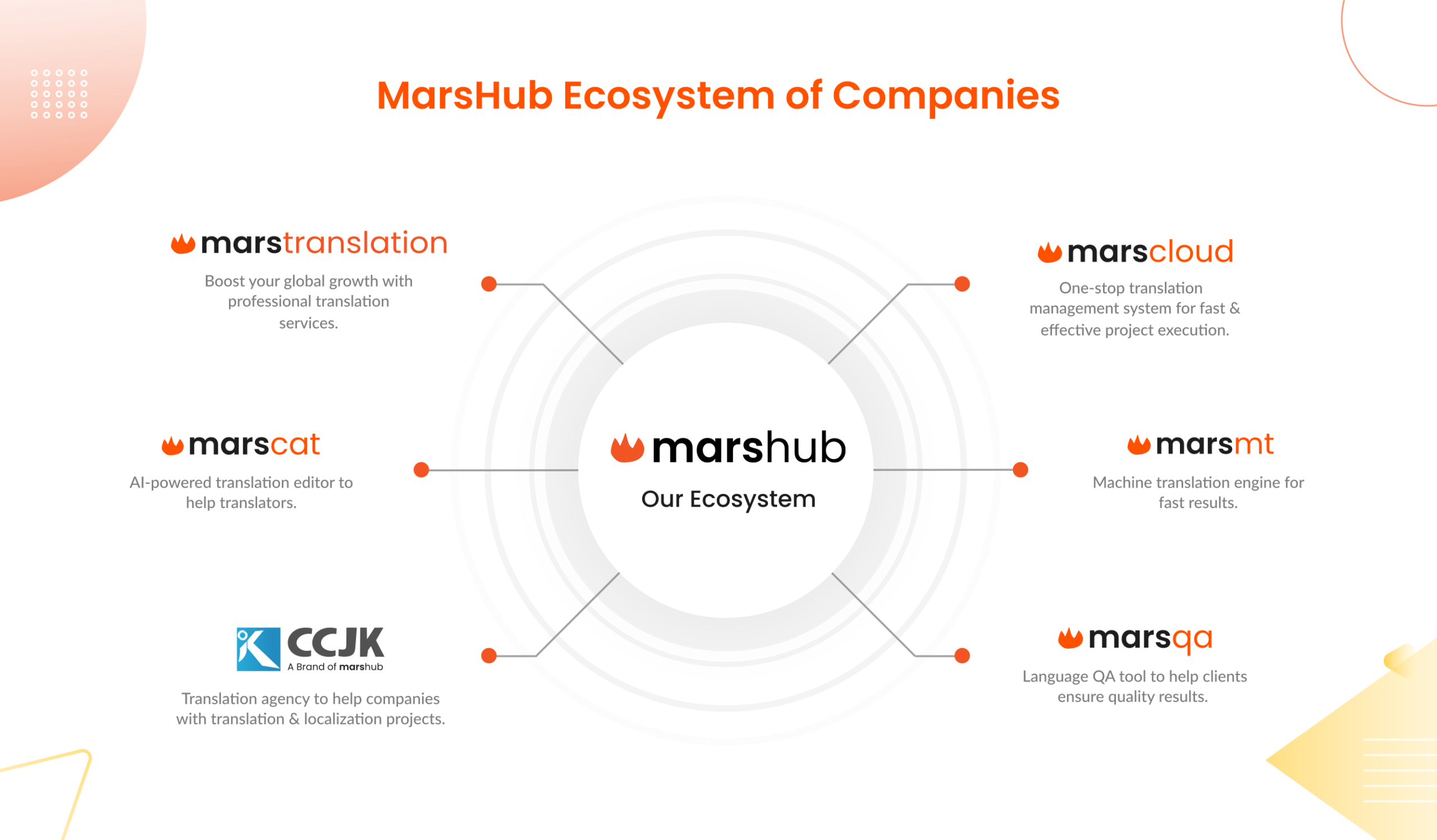Doing business on a global scale opens up loads of opportunities for your brand, and it also increases the demand for your products and services in the international markets. However, you have to provide excellent product quality with optimized brand experiments to your target customers to keep them engaged with your business. For this purpose, preparing your business for the local audiences is significant for building a robust brand identity in the foreign market. The demand for cloud-based TMS for the localization of business is increasing because of their capability to make translation management processes hassle-free and agile.
Using TMS for business localization is becoming a norm rather than an exception. Businesses prefer using cloud-based TMS because of their ability to provide agile translation management and reduce overall infrastructure costs. Moreover, these systems would also support the translation team and promote real-time collaboration, reducing all communication gaps.
Still, many language service providers are not sure whether they should go for a cloud-based or server-based TMS. In this article, there will be a detailed discussion on the perks of using cloud-based TMS and how they can support translation companies managing localization projects.
Content
What is a Cloud-Based TMS?
It is your full-service TMS, which is available on the cloud. You can access this TMS from any location, using any device. Cloud-based TMS is considered a good option for localization project management because of its availability, flexibility, and agility. The tools and features included in these systems are customized to the specific needs of the businesses. Moreover, the storage capacity of cloud-based systems is also higher, and you can easily upgrade the storage anytime whenever you need more space. The deployment of cloud-based TMS is very easy, and it also supports integration with other software making it a good choice for translation companies.
TOP 7 Benefits of Cloud-Based TMS
1. Save Up Your Time
If you are choosing the best TMS system for your localization projects, believe me, you are going to save a lot of time. The automated workflows allow you to quickly manage the translation management processes without any delays because of minimal human interventions. Once you have created the content in your native language, the rest is on to the TMS. It can generate the translation of your content into multiple languages, send it to a professional translator for final approvals, and position it back to the right location. There is almost no manual work involved, which again saves you time.
Moreover, in the case of transitional file management, you might waste time eliminating the errors caused by manual processes. Cloud-based TMS is less likely to make any mistakes, so you don’t have to spend time proofreading and editing the translations. You can easily customize it and deployment of a cloud-based system is also easier compared to servers, so it would not take you more time to set up the system for localization projects.
2. Easily Accessibility
As a translation service provider or a global business, you would have employees at remote locations. You should have a solution that is accessible to all native and foreign employees. On a cloud-based system, everything is placed at one location which makes it easier for all team members to easily access it whenever they want. It is a more unified and transparent system that enhances the visibility of all digital assets and the translation team.
Everyone can view the current project status without the need to send separate emails to each team member. The project manager can allow or deny the access of the localization team to particular sections depending on their job roles.
3. Better Quality Translations
The best thing about having a professional cloud-based translation system in place is that you can generate high-quality translation quickly. These systems include translation memories, glossaries, and quality assurance systems that would allow you to generate translations that are in context and deliver the same message as the original text. You just need this one TMS software, and it can translate a variety of content, regardless of the niche or industry you’re dealing in.
Human translators are more likely to make mistakes while translating content that would require a lot of proofreading and editing. Moreover, a cloud-based system has a built-in quality assurance system that further makes the translated content undergo a few more procedures to achieve excellent content quality.
TMS doesn’t take as much time as human translators to generate high-quality translations that are error-free. However, if you want, you can still get your machine translation proofread by a human translation professional. This will allow you to be 100% sure about the accuracy and intent of the translations. Using the translation memory, your TMS will mature over time, and it will help you produce more in-context translations. Your brand voice will also remain consistent across all regions.
4. Promote Better Collaboration
Communication is the most important thing when it comes to managing a localization project. Having a good means of communication between all team members is significant to successfully completing your business’s localization. Manual localization always suffers because of poor communication between employees. TMS has resolved these issues by eliminating all potential communication gaps among translation teams. These systems promote high collaboration between localization teams regardless of the distant locations. Cloud-based TMS is ideal for businesses that have employees working remotely.
It does not just allow remote employees to have full access to all digital assets but also makes it easier for them to collaborate with other team members. All team members can simultaneously work on one project with great collaboration. Unlike traditional localization processes, here all team members would have the same version of translation files. Every TMS has its own built-in communication tools. While choosing your TMS, make sure that it has good communication features because it is going to influence your teamwork.
5. Centralized Data
Cloud-based TMS would offer an effortless localization experience. All data is placed and stored in one place where it is accessible by all authorized team members. There is no need to spend hours sending emails to stakeholders for updated files. It is important that only one version of all translation documents is available to everyone, and there will be no issues regarding redundant data. So, everyone would know what is the current status of your localization project. Moreover, all translation team members can work on the same project simultaneously.
It also eases interdepartmental communications and reduces the need for excessively time-consuming interaction between team members. As all data is centralized in one place, it is important for the project manager to be extra careful about the accessibility of those documents. He should make sure that only authorized members are getting access to those documents to prevent data breaches. Especially, the official right to modify the database and edit legal documents should only be given to authorized members. So, file management in the cloud-based system would be way easier than manual file management, and there are also fewer chances for any costly mistakes.
6. Support Portability
Having a cloud-based TMS would reduce your dependency on one translation team only. You can easily hire someone at a remote location, or native speakers from other lands to manage your work. All of your files and documents are easily accessible in a cloud-based system. Managing the remote employees is also very hassle-free with this system, you can easily replace the existing linguists working on the translation project with new ones. Your new employees can also simply take over the translation work without any assistance.
So, we can say that working with translation management software would make your localization trouble-free. The higher transparency of these systems allows you to view cloud-based segments and have a clear picture of all team members’ activities. You would know who is free currently, and when you can assign them new tasks.
7. It is Budget-Friendly
A cloud-based TMS is not just saving your time and effort, but it is also the most cost-effective option available for LSPs and enterprises. It allows the project managers to effectively carry out tasks, which is significant for the completion of your localization project. For instance, you don’t have to spend more money on translators because your translations are handled by machine software. It is also a good option for user-generated content. It simply reduces your need for manual labor, as machines manage most of the work. TMS allows you to generate content that is relatively less costly than what you have to pay full-time translators. Of course, you would need some human translators for the editing, proofreading, and making sure that machine-generated content is up to the mark.
For content that does not need much creativity, you can completely hand it over to the TMS. Moreover, for the creative content, you might need some professional linguists. By using these cloud-based TMSs you can cut your overall project management cost. It’s AI-powered tools and customization options would make your localization’s success even more certain.
Summing Up!
Looking at the enormous benefits of cloud-based TMSs, global businesses should not ignore them if they really want to keep up with the times. Having a professional TMS would allow you to scale up your business by effectively managing their localization. They would reduce the time and effort required to enter a new market and promise business continuity. There is already high competition in the market, it is becoming more important for businesses to meet international market standards. Undoubtedly, cloud-based TMS would entirely transform your localization processes for good.
It would not just allow you to manage volumes of translations but also promote better communication among translation teams. There are many cloud-based translation management systems available in the market. You must carefully choose the TMS that would meet your business requirements and be exactly tailored to your localization project needs.



